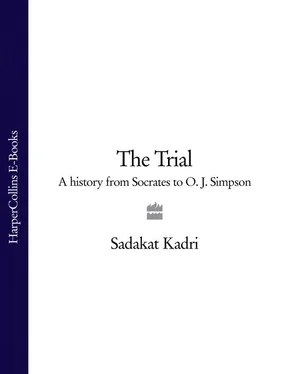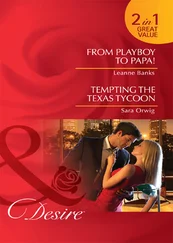It was in eighteenth-century France – a society in which many began to believe that human wisdom was not just improvable but perfectible – that the faith in reason reached its apogee. The spirit of the age was well expressed by the work of an influential jurist called Pierre François Muyart de Vouglans, whose textbooks portrayed French criminal procedure as an almost mathematically precise tool for the discovery of truth. Since crimes were effectively puzzles waiting to be solved, it was positively unjust to hold back when detaining a suspect. ‘The welfare of humanity demands that crime should not remain unpunished,’ he explained. ‘It is for that reason that, in the absence of other means of arriving at [a] complete proof, we are obliged to torture the body of the accused.’ That said, the absence of such proof was no bar to punishment. It had been established in 1670 that anyone who refused to confess was liable to any penalty short of death, and Muyart de Vouglans now explained why: anyone liable for torture was already more than ‘half-convicted’ and deserved a suitably proportioned punishment. If someone’s refusal to confess made a death sentence inappropriate, a judge might, for example, send him to the galleys for life instead. The flexibility of such a system, adjusting the penalty to fit the amount of evidence, represented for Muyart de Vouglans the acme of judicial sophistication. ‘By means of these augmentations and moderations of Penalties,’ he declared, ‘our Jurisprudence has reached a degree of perfection which distinguishes it among civilized Nations.’
Enlightenment rationalism did, however, have a more benign aspect. Previous assumptions about punishment and crime were called into question, and in an age when political philosophers were arguing for the first time that the exercise of power demanded public scrutiny, systematic criticism of the inquisitorial system also began to be heard. The greatest single impetus came in 1764, when an Italian called Cesare Beccaria published a powerful attack on the cruel, arbitrary, and brutal nature of European criminal justice – including a damning critique of the continental reliance on torture – that would define the terms of debate in Europe and America for decades.
Muyart de Vouglans was moved to publish a refutation, but many others were persuaded by Beccaria’s argument – among them, a judge called François Serpillon whose own textbook, published at Lyons three years later, contained another condemnation of torture – all the more persuasive because Serpillon had inflicted it. He reported that the custom in his hometown of Autun was to strip suspects, bind them to a table, and then question them for two hours while their legs were crushed between boards and slowly scalded with twelve pints of boiling oil. He had been present at interrogations twice – once only as a witness, but once (‘compelled’ by the evidence) as the torturer – and neither occasion had ended happily. The good news for the men being questioned was that both had been released following their refusals to confess. The bad news was that the legs of the first suspect had caught fire, necessitating amputation, while the second defendant had been so badly burned that the bones of his toes had had to be removed with pincers.
Another critic of the inquisitorial system, equally vociferous but considerably less compromised by its operation than Serpillon, was Voltaire, who campaigned against its inhumanity for a lifetime, but eloquently damned it with just a few lines in a 1766 commentary on Beccaria’s work. He reported that the inquisitors of Toulouse used not only half-proofs but also quarters and eighths, and came to their decisions by adding them up. A piece of hearsay amounted to a quarter-proof, while an even vaguer rumour might count for an eighth. The result was that eight doubts could constitute a perfect proof and send a man to his death.
Notwithstanding the pride of lawyers like Muyart de Vouglans, the entire edifice of inquisitorial procedure was already tottering by the time that Voltaire wrote his critique. Several European governments abolished torture during the late eighteenth century, and after 1780 even French courts permitted its use only to identify accomplices after conviction. The revolution that began at the Paris Bastille nine years later then saw the system collapse. Within two years, France’s trials had become public and adversarial, defendants had won guarantees against not just torture but oaths, and the power to investigate crimes was at last detached from the duty to judge them.
Enduring reform then came under Napoleon, who enacted a law code in 1808 that would be adopted across Europe and continues to underpin criminal justice systems on the continent today. Although judges can still conduct pre-trial investigations in secret, and dominate courts to an extent that echoes their former role, the malignity of the inquisition is now very much a thing of the past. Later chapters will show that the dangers of unaccountability and torture live on, but those risks are not the relics of any particular legal culture. Abolition of the inquisitorial system did, however, owe much to a very specific rival tradition. For the progressives who campaigned to bring it down modelled their proposals for reform on a criminal process that actually existed on the other side of the English Channel – the jury trial.
He considered what he should say to win over the whole audience once and for all, or if that were not possible, at least to win over most of them for the time being.
FRANZ KAFKA, The Trial
Innocent III’s decision in 1215 to abandon ordeals threw England as much into the lurch as it did the rest of Christendom. For time out of mind, the country’s kings had been subcontracting criminal justice to the clergy, who had been happy to to scald and drown suspected sinners for a small fee. Many ordinary folk had even come to trust trials by fire and water, if only because the primary alternative, trial by combat, seemed suspiciously favourable to whichever litigant was able to afford the better weapons and champion. The country’s response to the abolition of ordeals would, however, be very different from that adopted on the continent.
Whereas continental rulers would turn to the techniques of the papal Inquisition and the rules of canonical law to fill the legal vacuum, the Church would never gain an equivalent degree of influence over royal justice in England. Its legal pretensions had already taken a heavy blow when knights loyal to Henry II had rid their king of turbulent Thomas Becket by braining him in Canterbury Cathedral in 1170. The assassination was followed by important concessions to clerical independence from a penitent Henry, and the English Church of the early thirteenth century was in no mood to rock the boat. While Catholicism’s legal traditions spawned across Europe, nurtured by the demands of its war on heresy, representatives of the English Church positively avoided their country’s royal courts. Clerics would long retain peculiar privileges: they were, for example, granted an automatic immunity from punishment if they read Psalm 51 of the Bible aloud from the dock, a provision that would mutate into ridiculousness over the years as convicts memorized the ‘neck verse’ and merciful judges treated them as monks. Bishops would, for another five centuries, retain the right to try religious crimes such as heresy and moral misdemeanours such as adultery. Canonical law would never get to supersede custom and statute, however. The irrationalities of England’s royal courts would come from sources other than the Good Book.
The authorities initially had little idea what should replace trial by ordeal. Royal judges customarily took the king’s justice to jails around the realm every few years, and their coaches had already left London for the provinces in late 1218, when a rather perplexed note from the guardians of 11-year-old Henry III caught up with them. Proof by fire and water was no longer an option, it reminded them, and they might want to deal with minor cases by exacting promises of good behaviour. Exile would often be appropriate for those suspected of slightly more serious crimes. But all that the note could tentatively suggest for offences of violence or dishonesty was imprisonment – and in an era when judges toured dungeons to empty them rather than fill them up, the proposal was a stopgap rather than a solution. And yet, the king’s advisors had nothing else to offer. ‘For the present,’ they concluded forlornly, ‘we must rely very much on your discretion to act wisely according to the special circumstances of each case.’
Читать дальше




![Theresa Cheung - The Dream Dictionary from A to Z [Revised edition] - The Ultimate A–Z to Interpret the Secrets of Your Dreams](/books/692092/theresa-cheung-the-dream-dictionary-from-a-to-z-r-thumb.webp)







